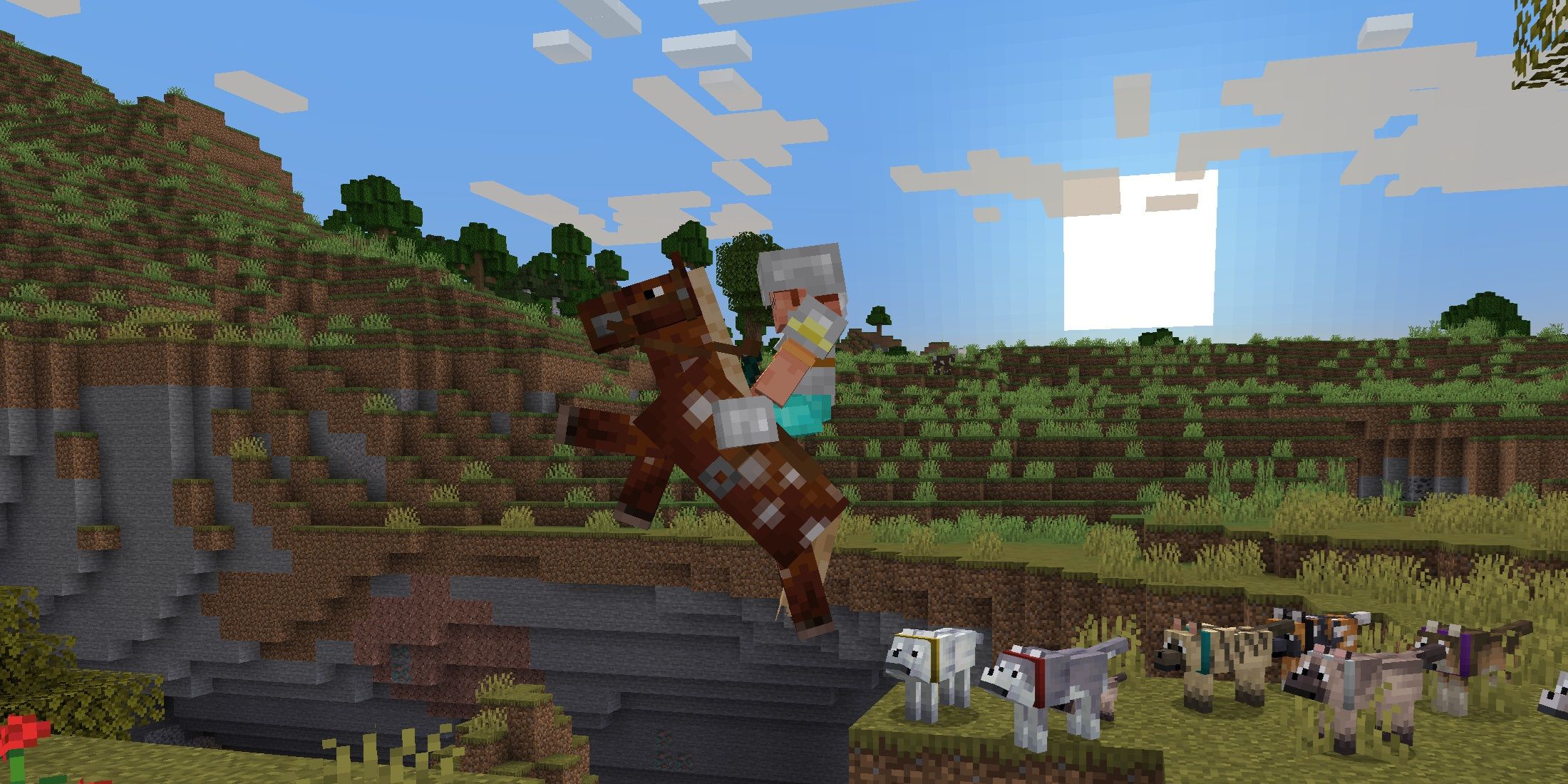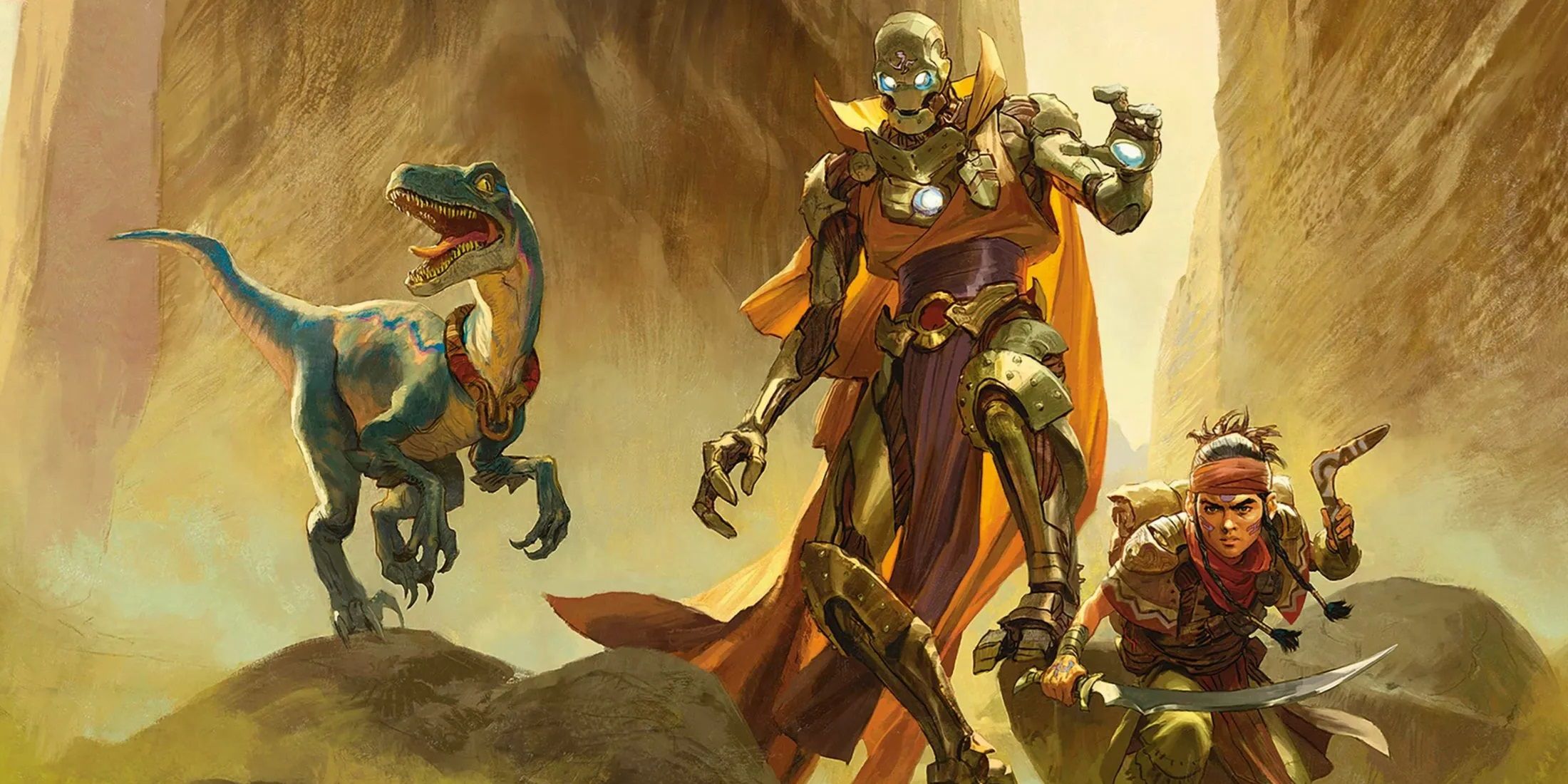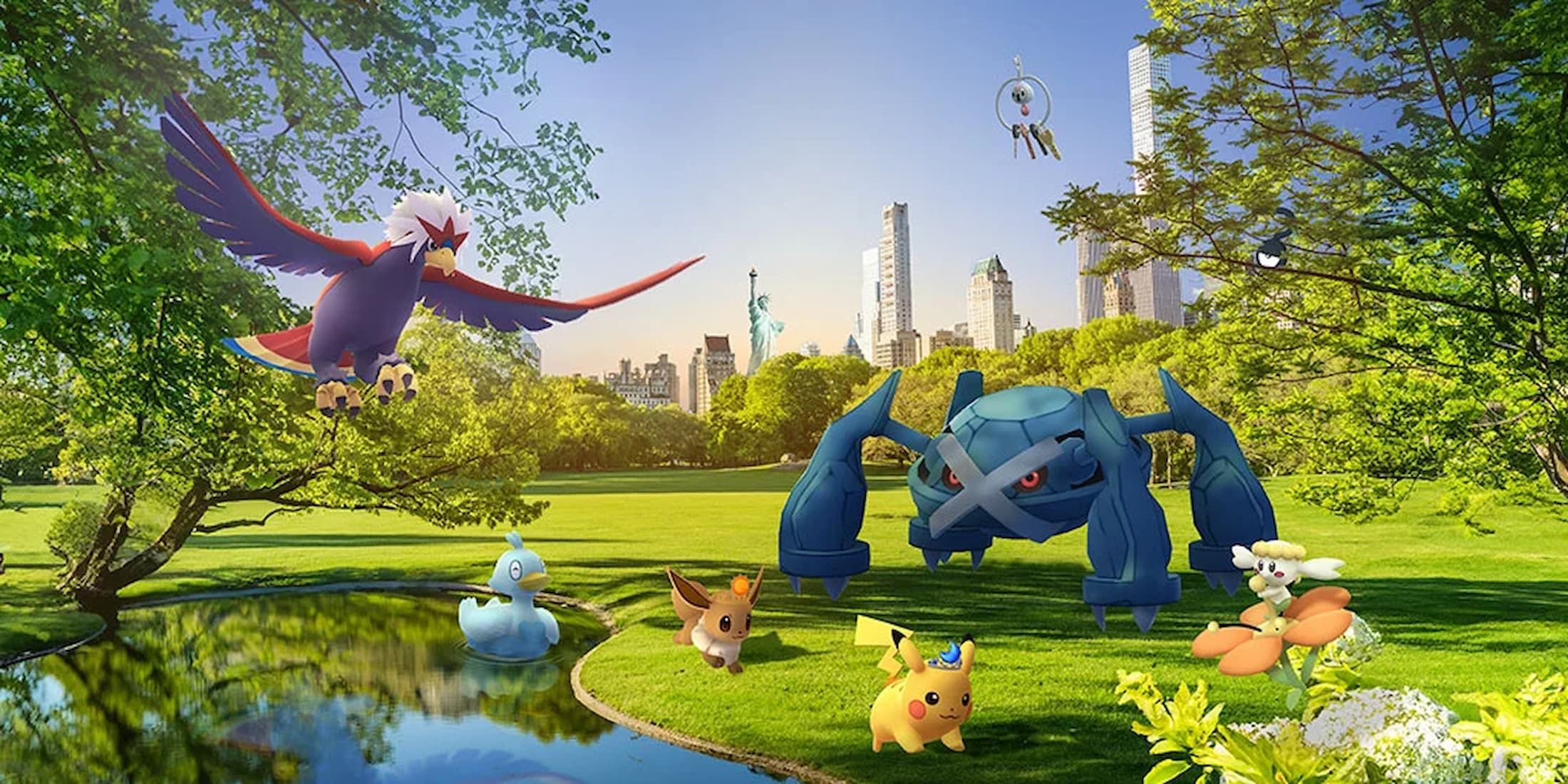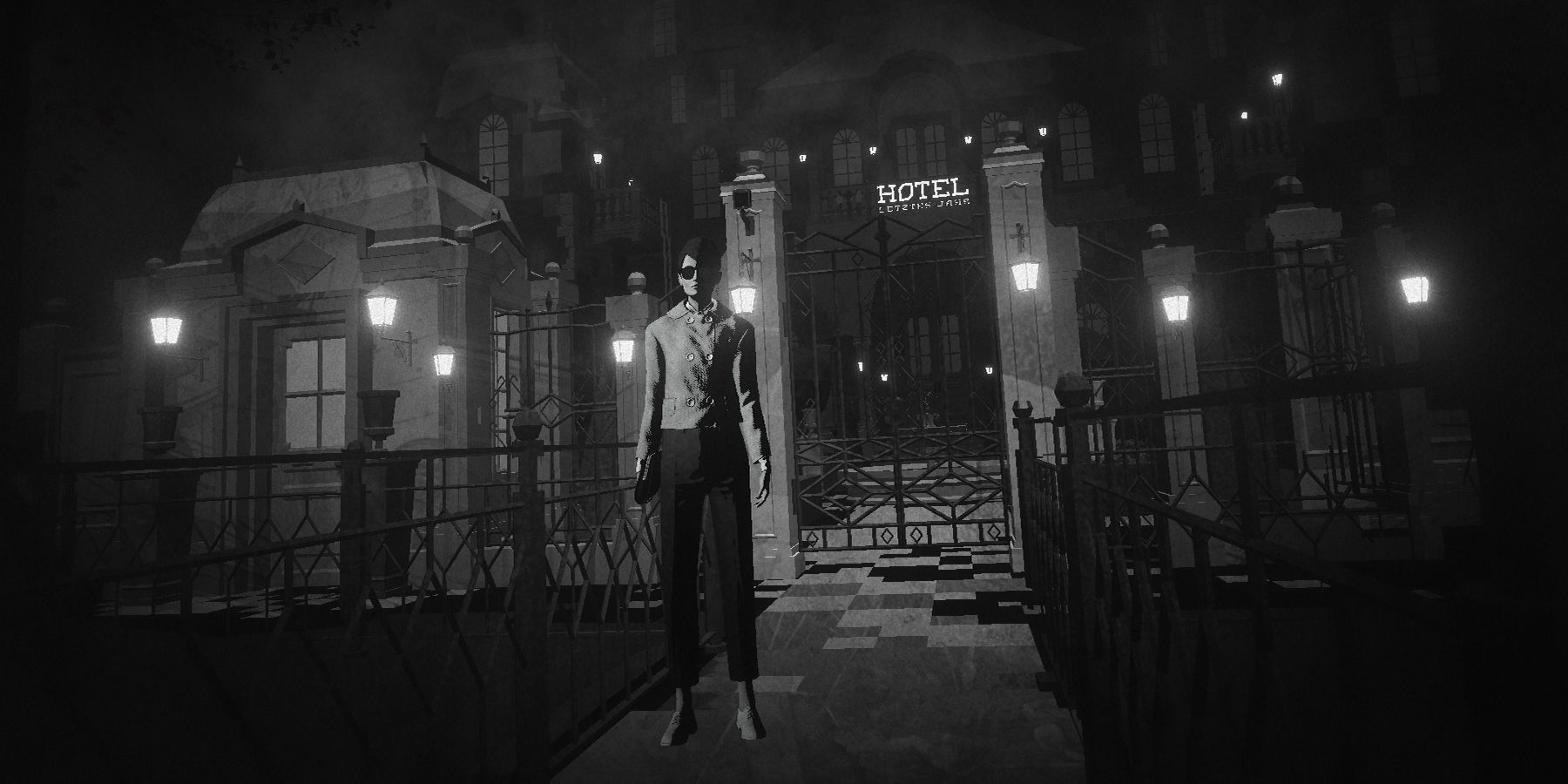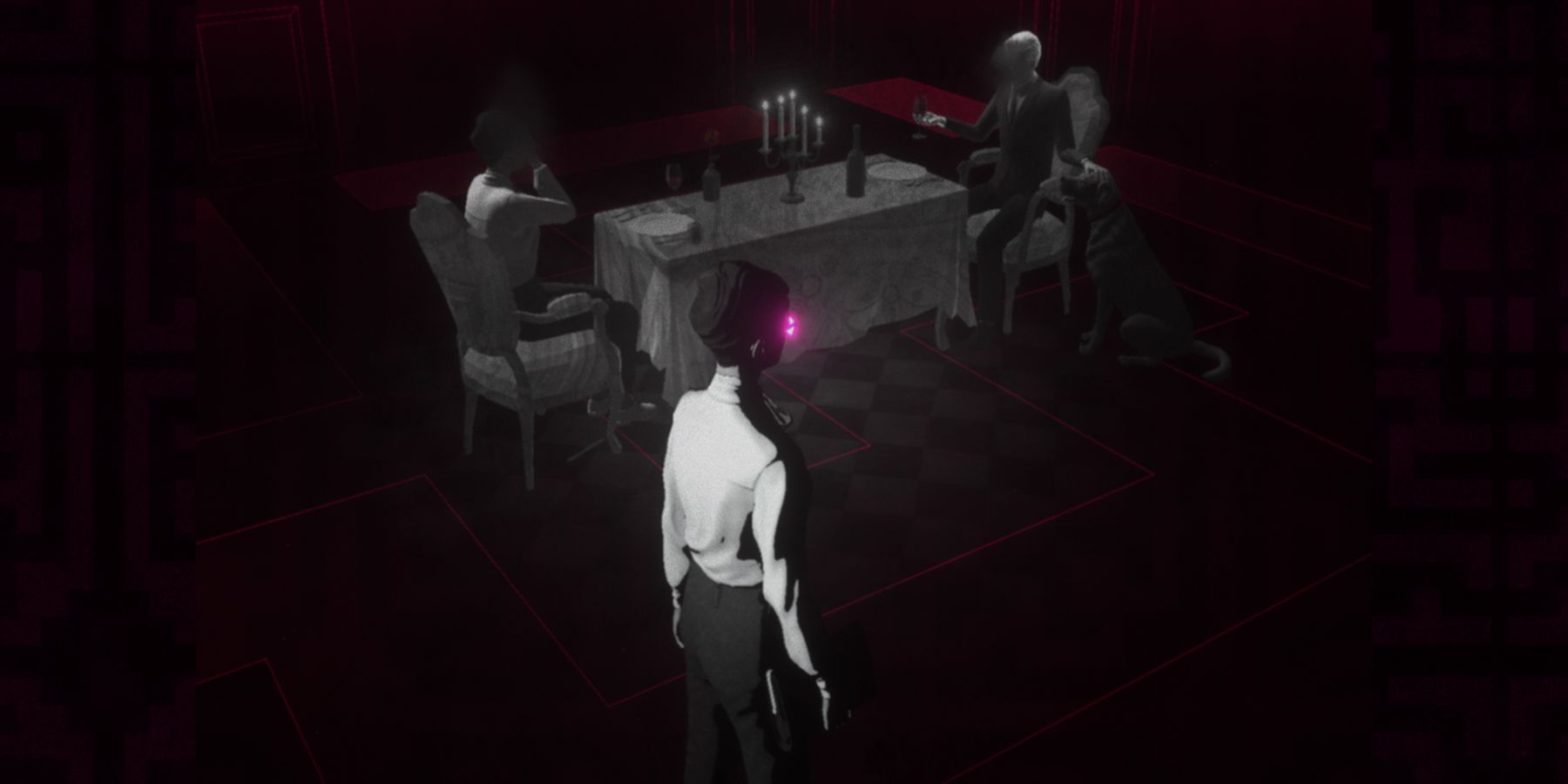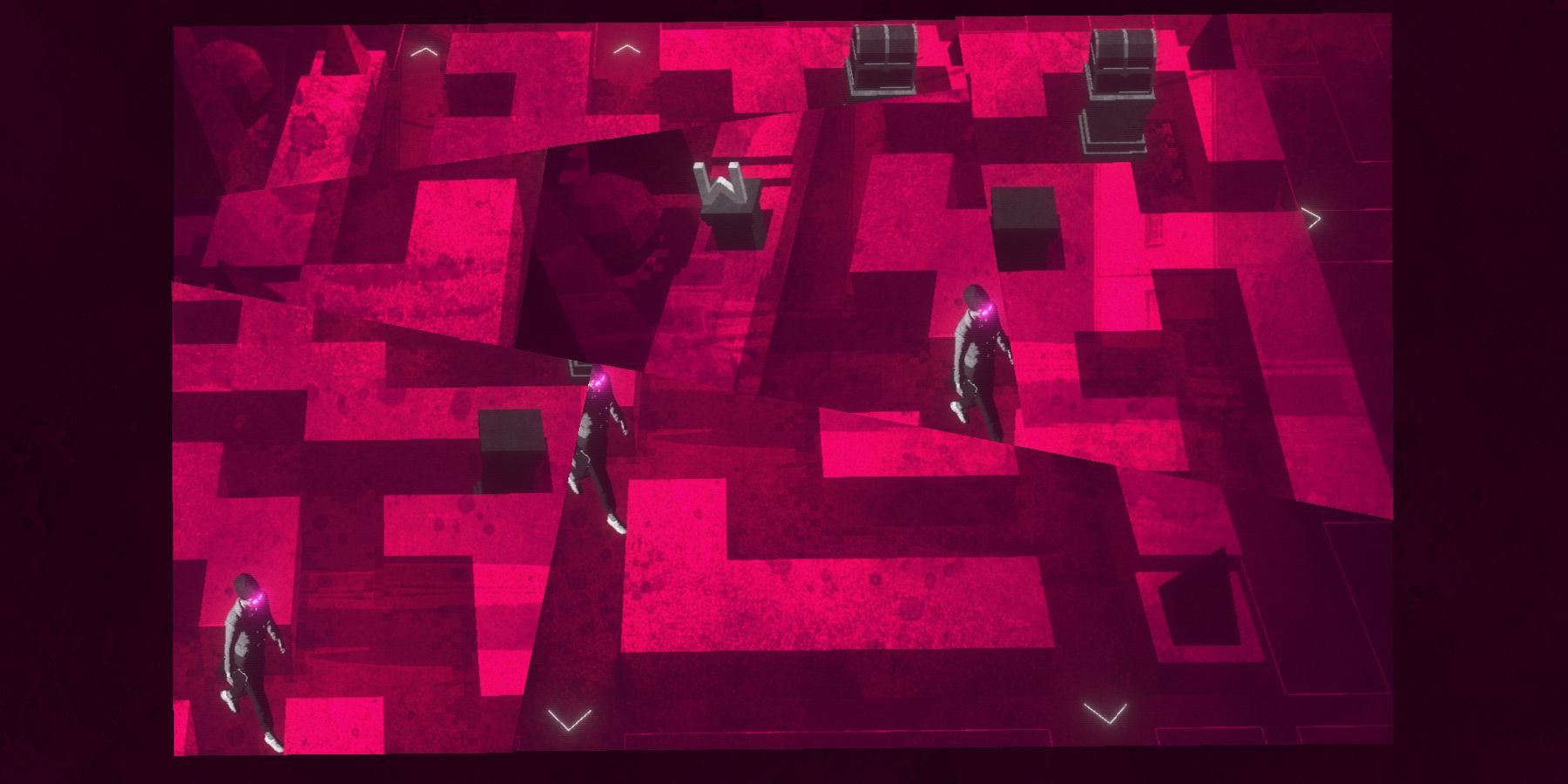Annapurna Interactive recently held its 2023 digital showcase, featuring game reveals, updates, and developer profiles. It also showcased a surreal trailer for the upcoming puzzle game, Lorelei and The Laser Eyes. The indie mystery game is currently in development for the Nintendo Switch and Steam with a release projected for later in 2023.
Game ZXC recently spoke to Simon Flesser, Game Director of Lorelei at the Malmö-based developer, Simogo, who also produced Sayonara Wild Hearts and Device 6. The following transcript has been edited for brevity and clarity.
Q: Please introduce yourself briefly, and describe Lorelei and the Laser Eyes for players who have yet to hear about it.
A: I'm Simon Flesser, and I guess I direct Lorelei and the Laser Eyes if there is such a thing as directing a game. Lorelei and the Laser Eyes is a puzzle mystery game, in which you control a character in third person in a broken and sometimes surrealistic place to seemingly find answers about events that took place in 1847, 1963, and 2014.
Q: Based on its unsettling, pseudo-hypnotic trailer, Lorelei and the Laser Eyes seems like the kind of game that will toy with its players in turn. What kind of mechanics can players expect to encounter?
A: Like our previous game, we wanted to solve the button complexity issues all games have today. This time we wanted to remove the dexterity skills involved altogether. So in Lorelei and the Laser Eyes, the main interaction is controlling a character in third-person using only one stick and one button, and she interacts with lots of objects within the world, leading to various types of focused interactions as you interact with other characters, and objects like locks, boxes, typewriters, maps, computers, videogames, film cameras, read portions of books and magazines, and sometimes make decisions via text prompts.
Q: Will the game’s puzzles feature repeating mechanics like those in a Metroidvania, a variety of formats like Professor Layton, or are most puzzles unique like Residential Evil?
A: Most puzzles are unique, and a few are variations and twists of each other, referring to each other in various ways. For quantity and frequency, we definitely looked at the Layton series for inspiration but wanted to make a game in which puzzles would have a natural place within the narrative. Resident Evil and other 90s survival horrors were inspirational too for puzzles, and we imagined how nice it would be to play games like that that take place within an ever-expanding world as you solve puzzles, without monsters on your back.
Q: How challenging are the puzzles compared to traditional narrative puzzle games like Myst or more recent puzzle-and-exploration-driven titles like Tunic?
A: Puzzle difficulty is highly subjective, but I would say that there is a good range, from medium to very difficult. Because of the very large volume of puzzles, coupled with the non-linear progression, it means players can almost always go and find another puzzle to solve, should they be stuck at the moment. But generally, it will be somewhat of an achievement to complete every puzzle in Lorelei and the Laser Eyes.
Q: Do puzzles tend to have more than one solution, or are they generally deterministic?
A: Puzzles generally only have one solution, but many of them might differ between players. A large portion of the puzzles, of which there are close to 150 as I type this, use elements that can be randomized, or scrambled, meaning that players will not be able to look up answers in a walkthrough.
Q: Based on its trailer and Steam page, Lorelei’s tone straddles surrealism, psychological thrills, and what appears to be a touch of political intrigue—but it’s also a murder mystery. Can you tell us a bit more about the story?
A: We want the story to be the main mystery, something for the players to piece together themselves, getting lost in. Like a maze. Seemingly, the story is about an artist who is called upon by an eccentric auteur to participate in a project at an old hotel in a forest. It is also a story about a magician looking for a long-lost treasure, a lost ghost, secret societies, and many other stories within stories within stories.
Q: On the Steam page, Lorelei style’s itself as a “non-linear place” as opposed to a puzzle, story, or adventure. The fiction is also located “somewhere in Central Europe.” What importance does setting play in Lorelei overall?
A: I do not want to go into much detail for fear of spoiling, but I can say that players will be able to explore other places within this setting, in dreams, in visions, in mirrors, and in games.
Q: What films, games, and other media influenced your approach to narrative in Lorelei?
A: Some films include L'Année dernière à Marienbad and 8 ½. Some of the books that inspired us are The Book of Illusions and The Magus.
Q: What inspired Lorelei and the Laser Eyes’ magenta-on-monochrome color scheme?
A: I had struggled so much with getting the colors right for our previous game Sayonara Wild Hearts, so one of the first decisions made about the next project was that it was going to be black and white.
Q: Is there anything else you would like our readers to know?
A: Things are not what they seem.
[End]
Lorelei and the Laser Eyes is currently in development for PC and Switch.

